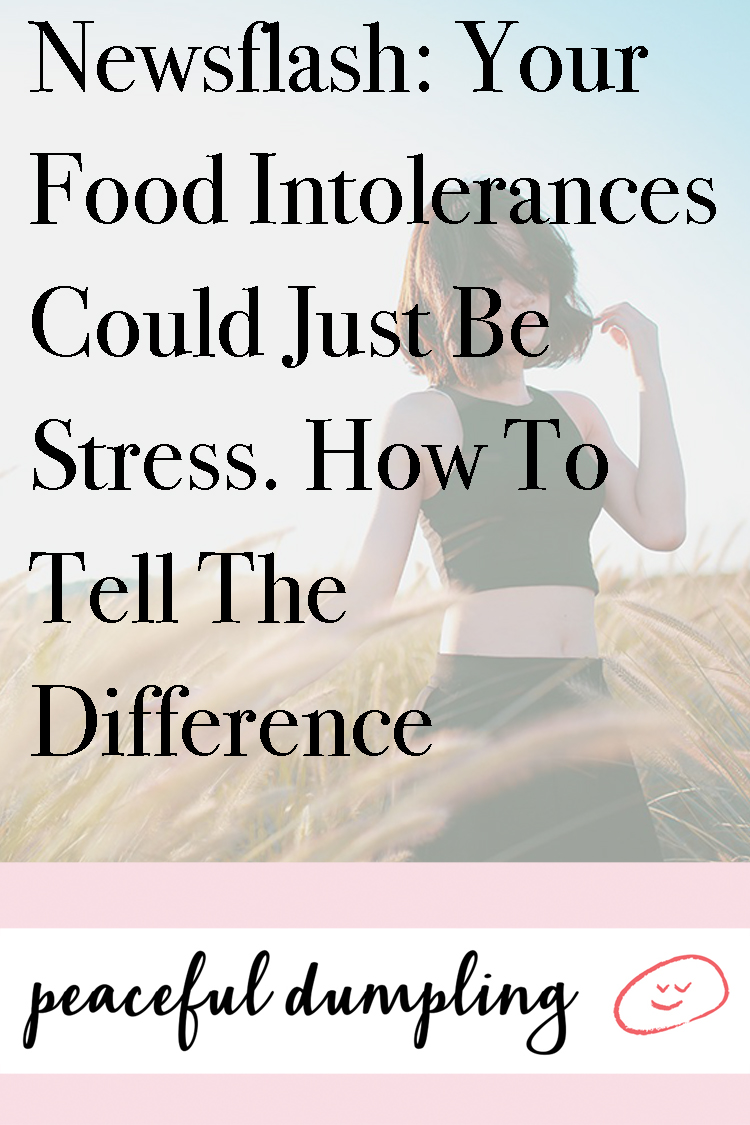Is it just me, or does it seem like the I-word is thrown around more today than ever before? “I” standing for intolerance, of course. Grocery stores are reorganizing to include a growing number of sections free from this, that and the other. Restaurant menus are expanding their coding systems way beyond a simple “V” for vegetarian. And I wonder if some of the pleasure of eating is slipping away in a fast-flowing river of digestive dysfunction.

It’s almost as though some of us adopt intolerances as we have traditionally done with fashion trends. We change our minds with the seasons, forever on a quest to reach optimal health. It can verge on obsessive, but it’s easy to see why. We all want to look and feel our very best and if we’re dealing with any unpleasant side effects of a potential intolerance, it’s a no-brainer to want to do whatever possible to put an end to it.
When I was in college, I went through a rough time for about a year or so, trying to identify what was causing me to get such painful episodes of bloating and stomach cramps. They would be crippling and have me curled in a ball on the couch, verging on tears. I tried cutting out dairy (which I was still consuming at that time), gluten, legumes, sugar; you name it, I’d given it a go. For a while I’d think that I’d nailed the culprit and could happily get on with my life; only, it never lasted very long before once again I’d be writhing in agony, wondering what the hell my body had such a problem with. Was I going insane? It almost felt too random to be able to associate with anything in particular, if I was truly honest with myself. But if I admitted that, then all I could feel was hopelessness.
A healthy gut is abundant in a mixed flora of microorganisms. These guys weigh in at about 1-2kg (2-4 lbs) of our total body weight (!) and help things to, ahem, keep running smoothly. Keeping levels topped up ensures symptoms of IBS are kept at bay, as well as helping to prevent infection by nasty pathogens. The best natural sources of probiotics are fermented foods such as kombucha and sauerkraut, though supplements are also a great way to include these in your diet.
A question that’s always sat in the back of my mind, however, is: what is it that makes some of us more predisposed to having a dodgy gut than others? Why do some people seem to need to obsess over the probiotics, while others sail through without any issues?
A recent study suggests stress plays the biggest role in affecting our gut microbiota. The same stress that affects our mental health is also able to change the biology of our digestive system. This has huge implications. And I suppose it’s no surprise, when I really stop and think about it.
Our brain and gut are incredibly closely linked. The latter has a huge impact on our mood and overall mental health. But more and more evidence is emerging that external stressors might serve as the main source of all of our problems (bar any hereditary issues, of course).
The study in question focused on hierarchical relationships in hamsters and how those who were subordinate were showing higher levels of stress hormones in their bodies. These hormones were, in turn, changing the composition of their gut flora. Interestingly, there also seemed to be a reverse effect at play, where the gut microbiota had an impact on whether the animal would have a tendency to be higher or lower ranking (winners or losers) in the hierarchy. It, therefore, appears that stress causes us to change our behavior and decision-making.
We’ve known for some time that maintaining a healthy gut is paramount if we want to keep things like anxiety and depression at bay. But it appears that we’ve now reached the point where the research is showing that pumping your body full of kombucha isn’t enough. The external stressors that cause the depletion of these microflorae need to be addressed in the first instance; that’s the root cause.
So, the next time that you’re trying to sell your skills to an employer based on your ability to “work under pressure” or “cope with large amounts of stress,” ask yourself, is it worth it? Save yourself some of the money spent on expensive superfoods and moisturizers claiming to do it all and address the source of your stress for a happier, healthier body.
Nowadays, I look back and see that that rough period in college was completely linked to a traumatic relationship that caused me huge amounts of stress. I learned from that and these days I live by the motto: if you’re in pain, change something!

Do you struggle with digestive or mental health issues? Is there somewhere that you could eliminate some external stressors?
Related: 6 Reasons You Should Be Eating Probiotics Every Day
Science Says Do These 6 Soothing Things Next Time You’re Super Stressed
Get more like this—Subscribe to our daily inspirational newsletter for exclusive content!
__




